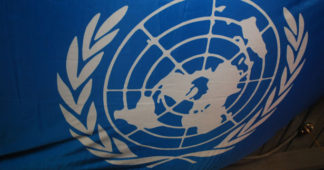by Paul Larudee,
reporting from an undisclosed location
Israel is losing the battle. They cannot afford to remain fully mobilized this long, even with unlimited US financial support. It is estimated that despite limited commercial flights, more than a quarter million Israelis have left the country. This is also the number that have evacuated settlements in both the south, in a large radius around Gaza, and in a wide ribbon along the northern border with Lebanon.
Israel is not used to this, and despite its sophisticated military equipment, it depends upon concluding its combat quickly and overwhelmingly. The problem is that it can’t. Hamas is too well dug in, and Hezbollah is too strong. Both have their own sophisticated equipment, despite an absence of navy and air force. Their strategy has been to make air and naval forces largely useless against them by means of a vast and well equipped underground network of reinforced, sealed and well defended tunnels. Their strategy is attrition: to draw out the conflict longer than Israelis are willing or able to endure.
It appears to be effective. Israelis are taking casualties at a rate to which they are not accustomed. This is making them slower and more cautious, except in the air, and it is disrupting civilian life to an unprecedented extent. The resistance forces of the Palestinians and their allies have planned for a confrontation of unlimited duration, while Israel plans only short, massive attacks designed for a quick, decisive victory, which in this case is illusive.
This is the main reason they have chosen genocide as a tactic. They reason that massive, horrible deaths of vulnerable civil Palestinians, mainly women and children, will force Hamas, Hezbollah and their allies to take risks and expose themselves. But genocide is not working. And when it doesn’t, Israel’s answer is to use more genocide.
Gaza is largely without food, medicine, electricity, fuel or potable water. Israel is trying to force a panicking population to leave or die. If they leave, it is to the Sinai, never to return to their own country. That suits Israel, but not Egypt, which has arrayed a solid row of tanks and other equipment along the border to prevent being forced to admit the Palestinian population.
This is why Israel is resorting to bombing hospitals, schools, mosques and even the few churches of the tiny Christian community that opened their doors to their Muslim brothers and sisters seeking refuge. The Israeli strategy seems to be that when pictures of gaunt living skeletons of children and mounds of corpses begin to be estimated in the hundreds of thousands, or more, the fighters will become desperate and/or the international community will compel Egypt to open its doors.
The strategy could backfire. The international community could become so horrified that no amount of hasbara [friendly media] will cover such epic crimes. Instead, their staunchest allies may be forced to abandon them, and other powers may enter the fray on the side of the Palestinians. At that point, the consequences become unpredictable. Demonstrations by the millions are already beginning to occur around the globe. At least one prominent voice in Israel has suggested the nuclear option.
The call for a ceasefire is becoming louder, but Israel sees that as a Palestinian win, and the Palestinian factions have little stomach for returning to the status quo ante, which means little more than confinement to destitute concentration camps or “reservations”. Caring people from around the globe are beginning to mobilize near the conflict zone, to try to, at minimum, allow the resumption of humanitarian aid, fuel, electricity and water to the besieged, starving, sick, parched and dying people of Gaza.
This is just the beginning. Things could change very quickly, for good or bad.
We remind our readers that publication of articles on our site does not mean that we agree with what is written. Our policy is to publish anything which we consider of interest, so as to assist our readers in forming their opinions. Sometimes we even publish articles with which we totally disagree, since we believe it is important for our readers to be informed on as wide a spectrum of views as possible.











